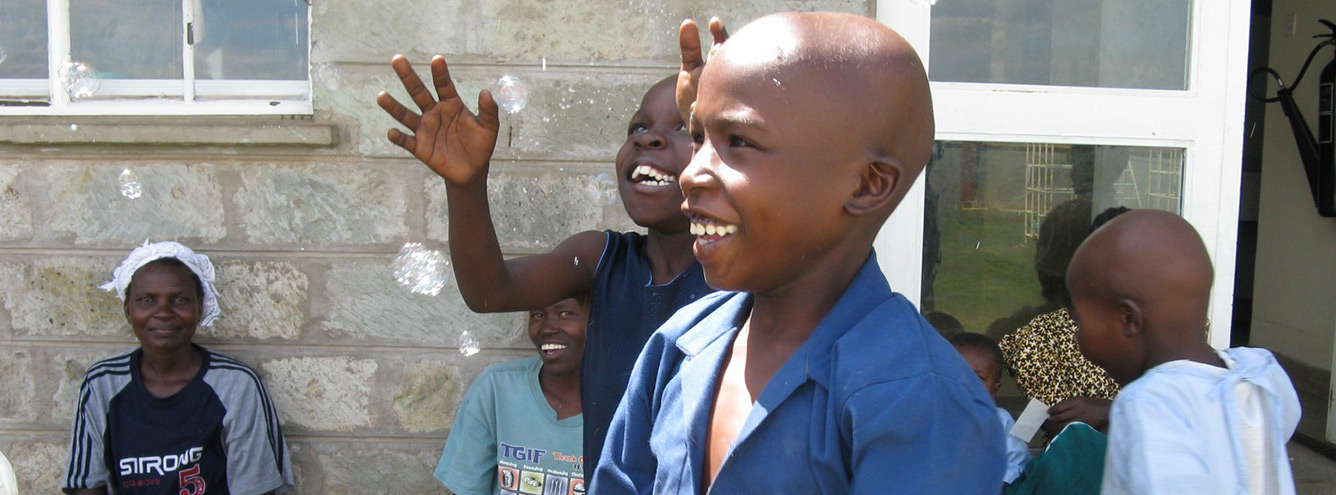One brave little girl’s legacy brings hope to children with cancer in Africa.
Aged just 11 months, Rati’s cancer-filled left eye was removed in Botswana, Southern Africa. Doctors thought she was cured, but delayed diagnosis, incomplete care, and lack of follow-up led to a recurrence in the eye socket 19 months later. Despite international support and aggressive treatment in Canada, Rati died when she was 4 years old.
Missed Opportunities
Rati’s parents took her to the doctor when she was five months old, concerned about the persistent white glow in her eye. Had she been diagnosed then and her eye removed, she would most likely be alive and well today. She would probably have survived had she received enucleation when diagnosed at 9 months, rather than 2 months later, along with chemotherapy. This was available in Botswana, but not prescribed for her.
She set us the challenge of improving retinoblastoma awareness, care, and support in Africa so that one day soon, no child will die due to delayed diagnosis or poor access to expert care.
Achieving Global Goals
Rati’s Challenge advances several United Nations Sustainable Development Goals, including universal health coverage, access to essential treatments, and the reduction of preventable deaths in children under five.
The Paris Charter, adopted at the 2000 World Summit Against Cancer for the New Millennium, recognizes that:
“Currently achievable improvements in cancer survival remain unrealized, due to…unequal access to quality cancer care.”
“Lives can and will be saved by increased access to existing technologies.”
“Clinical outcomes can be affected by the overall state of a patient’s mental and physical well-being, so the preservation of quality of life — including physical, psychological, and social functioning — should be a humanitarian priority.”
This call to action remains urgent. The 2017 WHO Cancer Resolution and the 2019 UN Political Declaration on Universal Health Coverage reaffirm the global commitment to equity in cancer early diagnosis and care, and support for the whole patient and their family.
Rati’s Challenge stands rooted in these global goals. The legacy of one little girl from Botswana has already saved many precious lives by raising awareness of retinoblastoma, increasing access to existing treatments, and promoting the complete wellbeing of both the child and their family.
Retinoblastoma In LMICs Today
Explore the urgent challenges children with eye cancer and their families face in resource-limited settings. Discover why diagnosis and care are often delayed, and how early detection and support can transform treatment, survival, and quality of life.
Kenya National Rb Strategy
Learn how Kenya’s groundbreaking approach to care evolved through collaboration, compassion, and local leadership, and how it’s become a model for retinoblastoma care in low-resource settings.
Early Detection
Discover how we raise awareness about the early signs of eye cancer, equip healthcare workers to identify and refer children quickly, and support the global retinoblastoma community to advance early detection together.
Child Life and Family Support
Find out how child life professionals transform cancer care in LMICs, helping children cope, heal, and thrive; and how Kenya’s pioneer training program leads the way in sustainable, locally led child life for Africa and beyond.
Remembering Jayne and Bella
On March 10, 2019, our beloved child life specialist, Jayne Kamau, and child life advocate, Bella Jaboma, died in the crash of Ethiopian Airlines flight ET302, alongside childhood cancer researcher, Grace Kariuki. We honour them in all we do to advance care in Africa.


